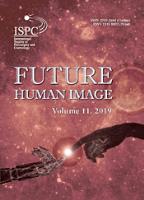Anthropological Aspects of Józef Tischner’s Philosophy of Drama
Anthropological Aspects of Józef Tischner’s Philosophy of Drama
Author(s): Bogdan TrochaSubject(s): Christian Theology and Religion, Social Philosophy, Philosophy of Religion, Phenomenology
Published by: Международное философско-космологическое общество
Keywords: axiology;philosophy of dialogue;anthropology;philosophy of drama;
Summary/Abstract: The main aim is to show the evolution of philosophical thoughts and searches of Józef Tischner. He is one of the most important contemporary philosophers in Poland. As a priest and student of Roman Ingarden, he combined phenomenology with the Catholic model of a man in his philosophical work. The specificity of Tischner’s philosophical output needs to be discussed separately because of its polemical character in relation to Thomism and Marxism, as well as the great influence of philosophical essays in which Tischner commented on the condition of society in the times of popular democracy and indicated alternative solutions to Marxism, setting philosophical foundations for a public discussion on the ethics of solidarity, the role of encounter and morality in everyday life, and also indicating the great importance of hope. The article discusses one of the most important problems that Tischner addressed in the context of his studies on Heidegger and Lévinas, creating a unique concept of a man inscribed in the philosophy of drama. This Tischner’s theory has many pragmatic features among many of its audience, which are supposed to lead, above all, to a proper understanding of the phenomenon of the meeting. Most of the studies devoted to Tischner’s philosophy focus on its relationship with a religious tradition, phenomenological tradition or the political perspective of his philosophical essays. In this case, the subject of analysis was made the Philosophy of drama, pointing not only to its sources, which are not always explicitly present in Tischner’s text itself but above all to the discursive dimension of this philosophical proposal. The results of this article not only allow a better understanding of the mechanisms present in Polish Christian philosophy but above all point to the possibility of using philosophical reflection in borderline situations. Thus, the presentation of Tischner’s philosophical concepts concerning the issues of dialogue and drama makes it possible to introduce mechanisms described by their creator into the field of independent cognitive projects concerning dialogue space, undertaken by readers.
Journal: Future Human Image
- Issue Year: 2019
- Issue No: 11
- Page Range: 104-112
- Page Count: 9
- Language: English

